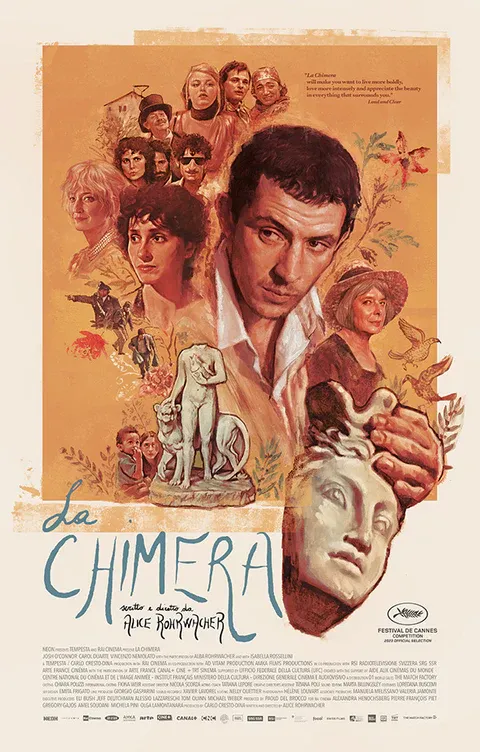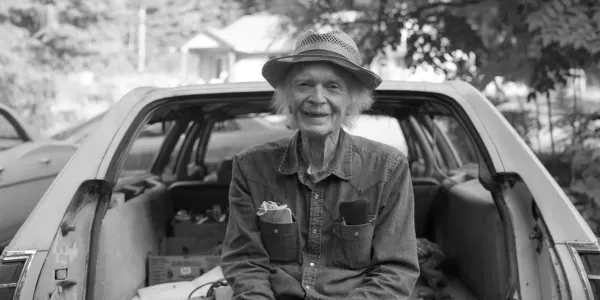What to Watch (and Who To Mourn)
Farewell Tina Turner, Kenneth Anger, and "Succession," hello "The Eight Mountains,""You Hurt My Feelings," & "Being Mary Tyler Moore"
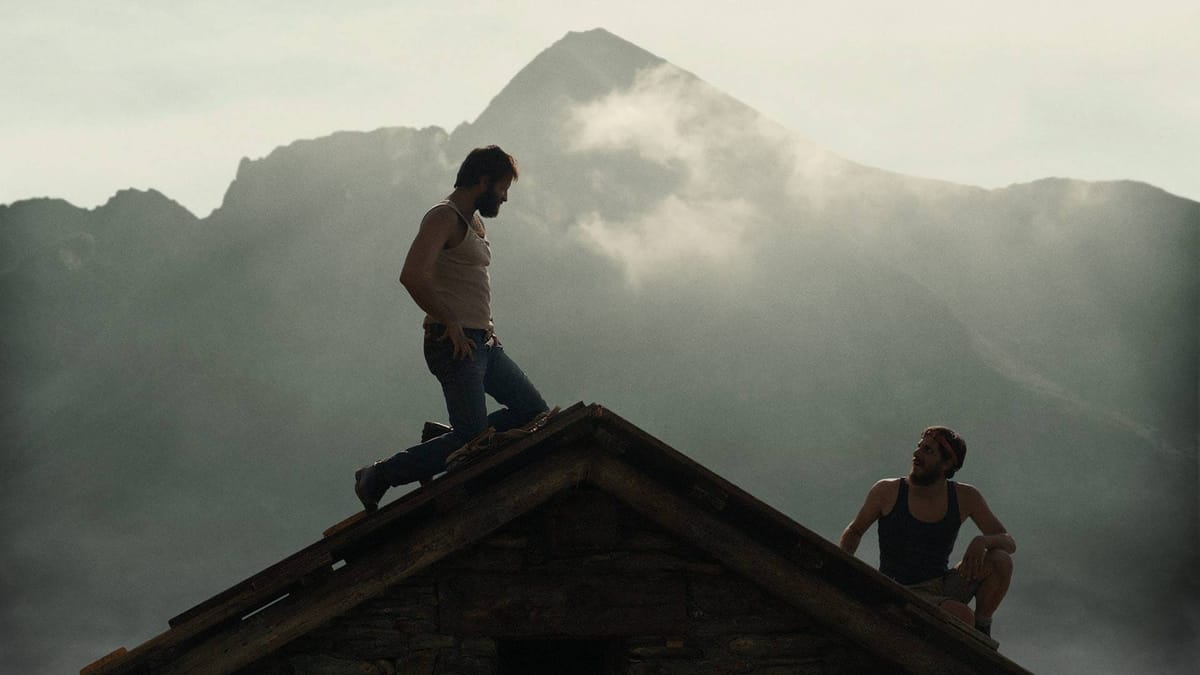
Lots in the news and on my mind this week, and even some movies and TV shows to recommend.
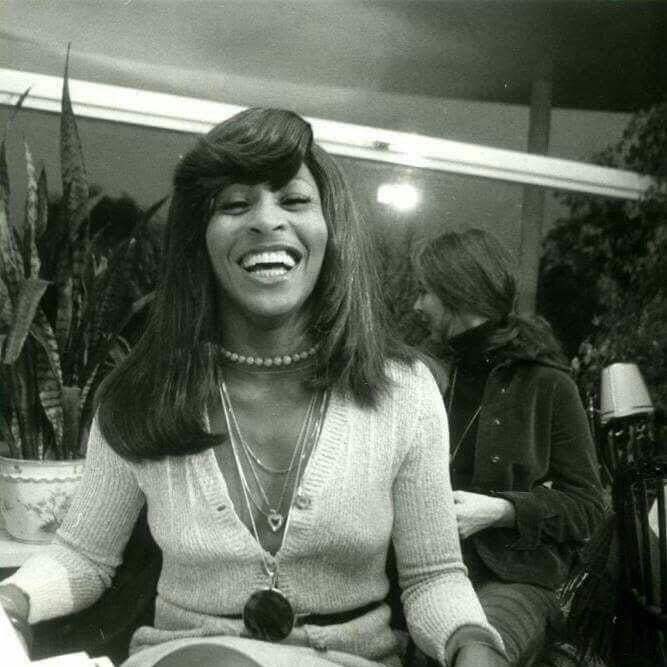
- Tina Turner, R.I.P. I went to bed Wednesday night with “What’s Love Got to Do With It” ringing in my brain and woke up to “River Deep Mountain High.” I can’t add much to the obituaries in the Times and elsewhere, other than to note that the singer had the best second-act revenge in the history of pop music – “I don’t consider it a comeback,” she once said about her 1980s solo success; “It was Tina’s debut” – and to urge you to watch the 2021 HBO documentary “Tina” (⭐ ⭐ ⭐) if you haven’t already. If you want more of the music, Stephen Thomas Erlewine at the L.A. Times has a fine curated list of deep cuts across the range of the singer’s career. On hearing the news of her death, I found myself reflecting on the many personas invented by and thrust upon Anna Mae Bullock from Nutbush, Tennessee, before she was able, at long last, to be the private dancer that was herself. And I flashed back to a 2001 interview I did with Ike Turner, in which he described how his ex-wife used to sit in front of a mirror backstage before their concerts, calling upon “Tina Turner” to rise up and take over Anna Mae’s body, soul, and voice. “’Here she comes…,” Ike remembered her saying. “Here she comes…” There she goes, and with her depart two indelible careers, one of primordial R&B and the other of supremely assured pop-rock.
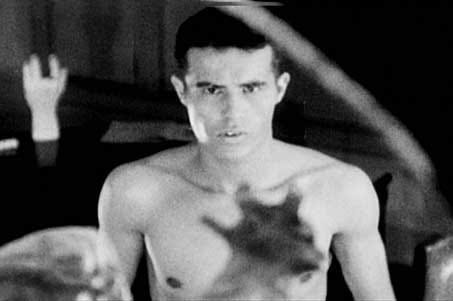
- Kenneth Anger, R.I.P. The devil inside American cinema, Anger was probably best known for his least important work: “Hollywood Babylon,” the luridly readable collection of urban legends that was published and banned in 1965 before becoming widely available in the mid-1970s. (The scandals Anger supposedly unearthed were so factually sketchy that critic/historian Karina Longworth devoted an entire recent season of her podcast “You Must Remember This” to debunking them.) Anger should be remembered as a pioneering avant-garde director and trailblazer of queer culture, one of a handful of post-WWII figures who opened up a space for filmmaking defiantly far from the studio gates. “Fireworks” (1947), shot at Anger’s parents’ house when they were out of town for the weekend, is the first gay narrative film made in America, and it remains astounding: 14 minutes of wracked poetic longing and transfiguration, it has left my students’ jaws on the floor when I’ve screened it in classes. His later work, particularly 1964’s “Scorpio Rising,” was a profound influence on young filmmakers like Martin Scorsese, David Lynch, and Kathryn Bigelow; Scorsese’s use of pop songs is almost unimaginable without Anger’s impetus. “Sympathy for the Devil” might sum up the American independent film movement’s veneration for this gnarly, knotty godfather, who was a follower of occultist Aleister Crowley and styled himself to the end as an unrepentant Lucifer of underground culture. That end came May 11, at the age of 96, after a great and transplendantly weird American life.
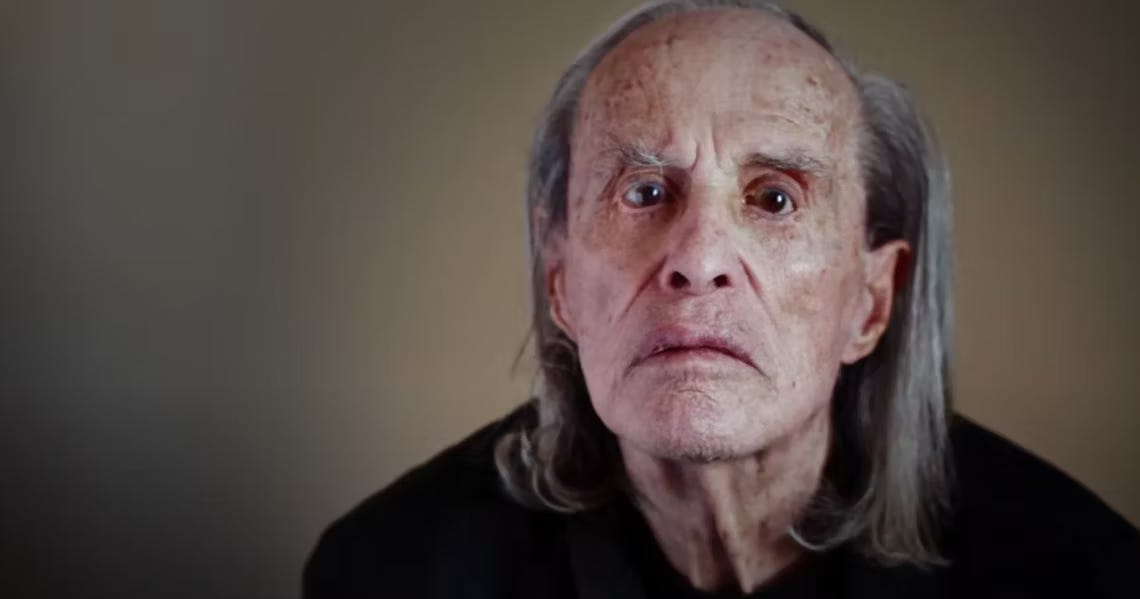

- The week also saw the debut of Max, the streaming platform that was meant to be a shiny new replacement for HBO Max but instead tripped over its shoelaces right out of the gate with technical glitches and a head-bangingly stupid “Creators” credit for each title that throws writers, directors, and producers into one category alphabetically organized by first name. Casts are organized separately but similarly, so Vivien Leigh is credited last for “Gone With The Wind” and Butterfly McQueen first (and “Creators” includes everyone except the film’s producer and prime mover David O. Selznick), while “Raging Bull” puts Cathy Moriarty first and Robert De Niro last and lists director Martin Scorsese fifth of eight “creators.” (Amusingly, the whole thing looks as if a low-level Warner Bros. IT drone pushed a button that moved an old database to a new database with fewer fields; having myself slaved doing movie-data categorization for Home Box Office way back in the workstation ‘80s, I have to wonder if they’re working with the same software.) Needless to say, this is not a good signal to send to writers who are out on strike and directors who may be next; both the Writers Guild and the Directors Guild sent shots across Max’s bow with angry statements, and by the end of Wednesday, the streaming service had announced it would reverse course and properly present credits, although no time-frame was offered. It was the second-worst product launch of the week, outdone only by Ron DeSantis’ disastrous campaign kickoff/face plant on Twitter Spaces.

- Other than that, people mostly spent the week placing bets on who will come out on top when HBO’s “Succession” winds down after four seasons this coming Sunday. (And when I say placing bets, I mean literally.) Slate is among the magazine sites spinning out the many possibilities, and if you’ve made it this far with the show – meaning you enjoy watching horrible people do horrible things if they’re interestingly flawed – you have your own best guess, which you are invited to offer up in the comments section, open to all today. So who will run Waystar? Roman? Not after last week’s heartbreaking funeral meltdown. Shiv? Probably not. Mattson? Quite possibly. Cousin Greg? Get out of here. My money is on Kendall, who will finally get what he thinks he wants – the company – by becoming the blackhearted image of his father, whose love was all he really wanted. (But I could be wrong and probably am – there’s probably a shoe waiting to drop in the form of that dead waiter from Season 1.)
Oh, right, this newsletter is about recommending movies in theaters and on demand. I have a few suggestions.
The weekend’s two best new movies are in theaters: The first, the adorable “You Hurt My Feelings” (⭐ ⭐ ⭐ 1/2), opens wide after conquering hearts at the Sundance Film Festival in January. Reviewing “Feelings” in Park City, I called it
a return to gracious, funny form for writer-director Nicole Holofcener (“Lovely And Amazing,” “Friends With Money”)… The movie’s about the lies we tell our loved ones to make them feel better and the truths we’re afraid they’re not telling us – about finding the right admixture of blunt honesty and tact to maintain a relationship. Julia Louis-Dreyfus (who’s wonderful) plays a writer whose new novel isn’t coming along well and who overhears her psychiatrist husband (Tobias Menzies, Prince Philip on “The Crown”) tell someone what he really thinks about the manuscript he’s been praising to her face. … The movie’s one of Holofcener’s best – consistently hilarious but with pointed insights about the ways we delude and console ourselves and each other. And the director knows the tradition she’s working in: When Louis-Dreyfus has a panic attack on a Manhattan street corner and almost pukes in a trash can, moviegoers with long memories may recognize it as the very same spot – and, who knows, maybe the same trash can – where Jill Clayburgh lost her lunch after learning of her husband’s affair in “An Unmarried Woman” (1978).

“The Eight Mountains” (⭐ ⭐ ⭐ 1/2) instantly takes its place as one of the better dramas about male friendship, in part because there are so few of them. (What are the others? “Jules and Jim”? “Stand By Me”? “Brian’s Song”? Feel free to discuss below – and buddy comedies don’t count.) “Mountains” comes to local arthouses after premiering in New York and L.A. last week, and you should see it on the big screen if you can; although the filmmakers stick to a boxy Academy ratio, the better to frame the movie’s intimate emotional palette, the vastness of the settings in the Italian Alps still comes through. Adapted from Paulo Cognetti’s novel by Belgian writer-directors Felix van Groeningen and Charlotte Vandermeersch (“The Broken Circle Breakdown”), the film tells of the lifelong bond between Pietro (Luca Marinelli, the star of 2019’s “Martin Eden”) and Bruno (Alessandro Borghi), two men who wind in and out of each others’ lives over the course of three decades. We meet them as 11-year-olds (respectively played by Lupo Barbiero and Christiano Sassella) when city kid Pietro comes with his parents to spend a summer in Grana, high up in the Western Alps. There Bruno lives with his uncle and aunt, who run a small dairy farm while his rarely seen father works construction jobs in other countries. Petro’s father (Filippo Timi) becomes a surrogate father to Bruno as he leads both boys on hiking expeditions to the high ridge-lines and peaks, and the boys’ friendship is tinged by Pietro’s envy, which is turned against the father once adolescence kicks in.
By their 20s, Pietro is rootless and dissatisfied – an angry seeker – and Bruno seems to have found peace by remaining in the mountains. These poles will switch and switch again over the course of the film. The friendship is renewed and strengthened by the building of a high Alpine hut together, and “The Eight Mountains” proceeds to roll through years of changes, gambles, enlightenments, and missteps – peaks and valleys, if you will. A Buddhist legend provides the film’s title: Some people travel the eight mountains and seas that encircle the world, and some remain atop the tallest mountain, Mount Sumeru, at the center. Which is the wiser? “The Eight Mountains” knows better than to say; it’s more interested in the granularities of the central relationship, which is portrayed with a depth and openness and physical affection that most films about men steer clear of and which comes to seem immensely touching by the final sequences. Women are present but secondary to the story – although Lara (Elizabetta Mazzullo), Bruno’s wife, is a fiercely individual figure on her own terms – and if “The Eight Mountains” dips its toe in the warm waters of sentiment, it remains admirably attentive to all the things men don’t say to each other and, when love overcomes macho defensiveness, all the things they do. Which is to say that every teenage boy should watch this movie, and the sooner the better.
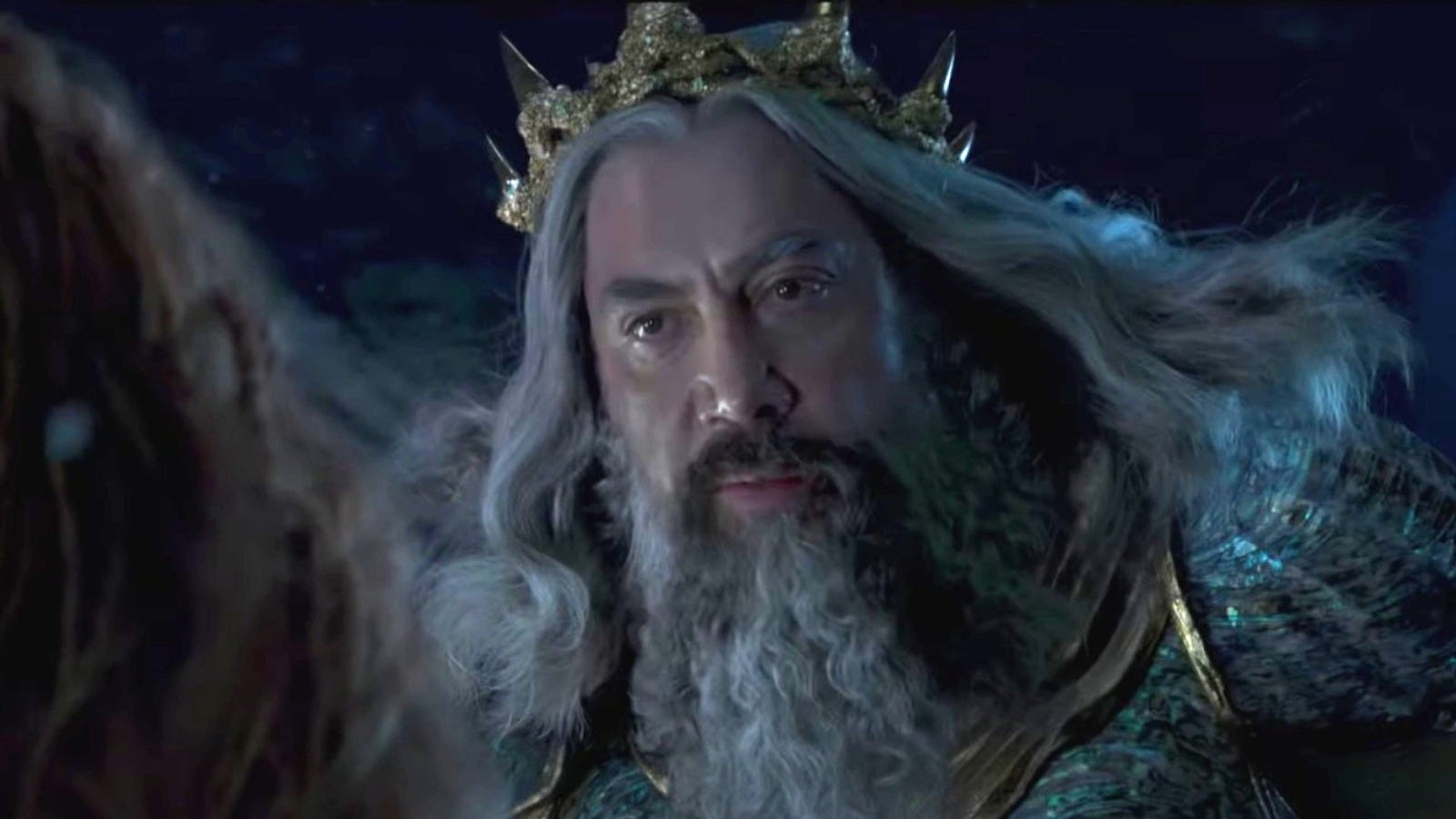
Also in theaters today: “The Little Mermaid” (⭐ ⭐), Disney’s latest “live-action” remake of an animated company jewel. The quotes around “live-action” are because you will rarely find a movie so digitized within an inch of its life. The indestructible songs written by Howard Ashman and Alan Menken for the 1989 original have been augmented by new tunes provided by Lin-Manuel Miranda, which means Scuttle, the Northern Gannet voiced by Awkwafina, gets a suspiciously “Hamilton”-esque rap number called “The Scuttlebutt.” (That hit musical’s Jefferson, Daveed Diggs, provides the voice of Sebastian the Crab.) Halle Bailey brings a wide-eyed naivete and major Broadway pipes to the title role, Melissa McCarthy hams it up as the villainous Ursula, and – in the camp casting coup of the year – Javier Bardem plays King Triton with a glue-on beard and an absolutely straight face. The movie is product and that’s all it is; it’ll make a bazillion dollars, and when technology progresses to the point where we’re watching 3D holographic Sensurround movies, Disney will make a new version for that. Along with Max’s dumping of everyone who works on a movie into a bin labelled “creators,” this is what happens when you start thinking of films as “content.”
Streaming on Max: “Being Mary Tyler Moore” (⭐ ⭐ 1/2), an agreeable, bog-standard bio-documentary that will probably leave you a weepy mess if you have any emotional corner in your heart reserved for Laura Petrie, Mary Richards, or even chilly Beth Jarrett from “Ordinary People.” Directed by James Adolphus and written by James L. Brooks and three other alumnae of “The Mary Tyler Moore Show,” it’s a tender and somewhat protective portrait of an actress who it’s acknowledged was a more tightly wound personality than her beloved persona implied, and a little less of a feminist, too. (Otherwise, she might have given it right back to appallingly sexist interviewer David Susskind in the clip that starts the film; a nice story making the rounds of Twitter this morning illustrates how Tina Turner dealt with Mike Wallace in a similar situation.) Not surprisingly, the sections on the groundbreaking 1970s sitcom are the richest, and someone was smart enough to include the funeral scene from “Chuckles Bites the Dust,” still side-splitting after all these years and proof that Moore was one of the most gifted comic actors of her era.
Over on Apple TV+, the new limited series “Platonic” (⭐ ⭐ ⭐) debuts, and the three episodes I’ve watched so far are good, bristly fun that allow the odd-couple pairing of Seth Rogen (schlubby, loud) and Rose Byrne (ladylike, potty-mouthed) to maintain the bizarre but undeniable chemistry they established in the two “Neighbors” comedies. Those were directed by Nicholas Stoller (“Bros,” “Forgetting Sarah Marshall”), who along with wife Francesca Delbanco is credited as the new show’s creator. (See, Max? – it can be a real credit when used correctly.) The set-up is that Will (Rogen) and Sylvia (Byrne) were best friends in college who drifted apart after she got married and had kids and he got married to a woman she warned him about. Fifteen years later, she’s an ex-lawyer/stay-at-home mom going out of her mind and he’s a newly divorced brewmaster whose cynicism neatly dovetails with hers; the friendship renews as they embark on ill-advised adventures like breaking into Will’s ex-wife’s house to retrieve his iguana and accompanying Sylvia on a real estate excursion to a former assisted living facility. The laughs are there and the two stars play extremely well together, liked a mixed-gender Lucy and Ethel. Recommended.
I hope this gives you something to liven up your weekend. Please don’t hesitate to weigh in with thoughts.
If you enjoyed this edition of Ty Burr’s Watch List, feel free to pass it along to others.
If you’re not a paying subscriber and would like to sign up for additional postings and to join the discussions — or just help underwrite this enterprise, for which the management would be very grateful — here’s how.




